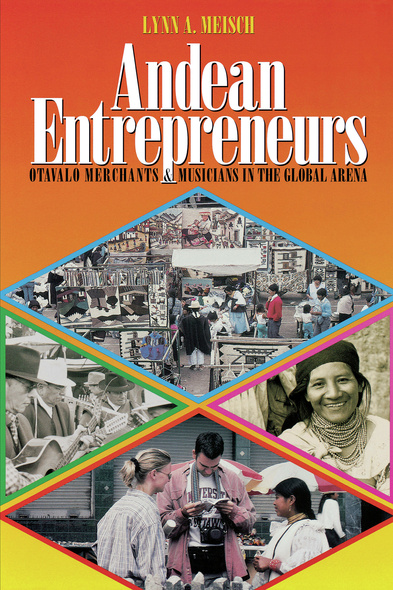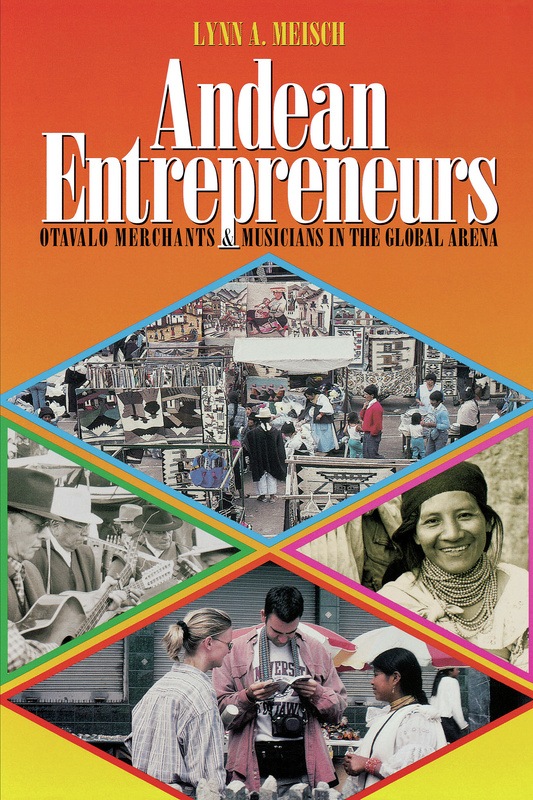Our shopping cart is currently down. To place an order, please contact our distributor, UTP Distribution, directly at utpbooks@utpress.utoronto.ca.
Andean Entrepreneurs
Otavalo Merchants and Musicians in the Global Arena
Native to a high valley in the Andes of Ecuador, the Otavalos are an indigenous people whose handcrafted textiles and traditional music are now sold in countries around the globe. Known as weavers and merchants since pre-Inca times, Otavalos today live and work in over thirty countries on six continents, while hosting more than 145,000 tourists annually at their Saturday market.
In this ethnography of the globalization process, Lynn A. Meisch looks at how participation in the global economy has affected Otavalo identity and culture since the 1970s. Drawing on nearly thirty years of fieldwork, she covers many areas of Otavalo life, including the development of weaving and music as business enterprises, the increase in tourism to Otavalo, the diaspora of Otavalo merchants and musicians around the world, changing social relations at home, the growth of indigenous political power, and current debates within the Otavalo community over preserving cultural identity in the face of globalization and transnational migration. Refuting the belief that contact with the wider world inevitably destroys indigenous societies, Meisch demonstrates that Otavalos are preserving many features of their culture while adopting and adapting modern technologies and practices they find useful.
Meisch is a master ethnographer of the postcolonial situation. When nobody remembers the faddish side of postcolonial studies, readers will still be poring over this book to find out how indigenous America threw the 'mestizo-white' establishment for a judo loop at the end of the twentieth century.
Lynn A. Meisch is Associate Professor of Anthropology at St. Mary's College of California, Moraga. She has known Otavalo as "a traveler, independent scholar, tour guide, development worker and teacher of textile techniques, leader of study abroad programs, textile collector for museum exhibitions, anthropologist, and godmother to eighteen children from both indigenous and white-mestizo families of varying social and economic classes."
- Acknowledgments
- 1. Introduction: Globalization and Otavalo Life
- 2. How the Otavalos Became Otavalos
- 3. Textiles and Tourism Move to the Fore
- 4. In Search of the Noble Savage: Tourism and Travel to Otavalo
- 5. Otavalo Music at Home and Abroad
- 6. Otavalo Merchants and Musicians in the Global Arena
- 7. Otavalo Wealth and Changing Social Relations
- 8. Coping with Globalization
- References
- Index





